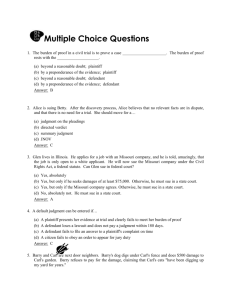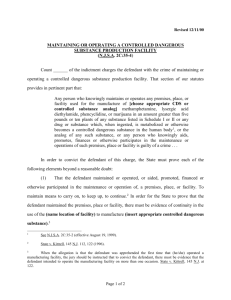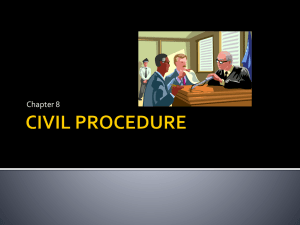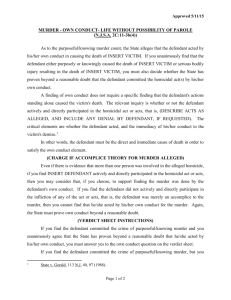Plaintiff Close 12-28-10
advertisement
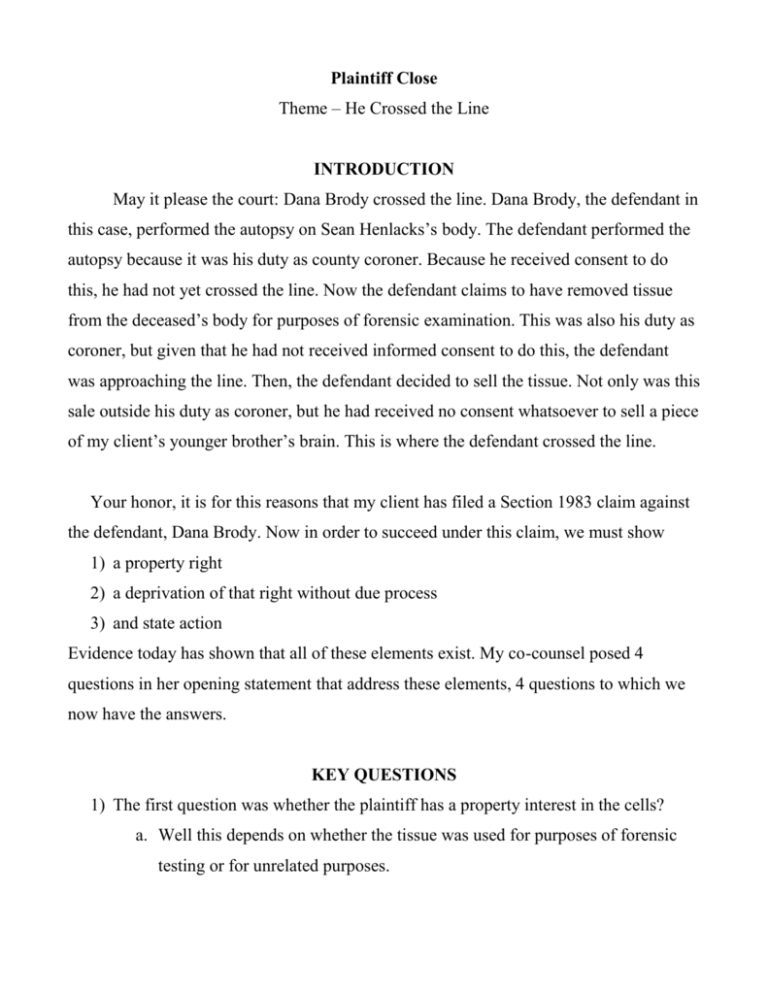
Plaintiff Close Theme – He Crossed the Line INTRODUCTION May it please the court: Dana Brody crossed the line. Dana Brody, the defendant in this case, performed the autopsy on Sean Henlacks’s body. The defendant performed the autopsy because it was his duty as county coroner. Because he received consent to do this, he had not yet crossed the line. Now the defendant claims to have removed tissue from the deceased’s body for purposes of forensic examination. This was also his duty as coroner, but given that he had not received informed consent to do this, the defendant was approaching the line. Then, the defendant decided to sell the tissue. Not only was this sale outside his duty as coroner, but he had received no consent whatsoever to sell a piece of my client’s younger brother’s brain. This is where the defendant crossed the line. Your honor, it is for this reasons that my client has filed a Section 1983 claim against the defendant, Dana Brody. Now in order to succeed under this claim, we must show 1) a property right 2) a deprivation of that right without due process 3) and state action Evidence today has shown that all of these elements exist. My co-counsel posed 4 questions in her opening statement that address these elements, 4 questions to which we now have the answers. KEY QUESTIONS 1) The first question was whether the plaintiff has a property interest in the cells? a. Well this depends on whether the tissue was used for purposes of forensic testing or for unrelated purposes. b. You heard from Dr. Reese that the sale of the tissue was entirely unrelated to determining the cause of death, therefore the case Brotherton v. Cleveland applies. c. In this binding 6th circuit case, Deborah Brotherton appealed the dismissal of her section 1983 claim for the wrongful removal of her deceased husband’s corneas for purposes other than the autopsy. d. The Brotherton court held that the next of kin does in fact have a “legitimate claim of entitlement” to a deceased family member’s body, and this claim of entitlement or property interest is protected by the 14th amendment. e. Therefore the Henlacks family had a property interest in Sean’s deceased body. 2) The second question was whether the plaintiff was afforded due process in the taking of this property. a. Due Process is the notice of a taking and the right to appeal. b. You heard from Taylor Henlacks that the defendant didn’t even notify her of the removal of a portion of her brother’s brain! She heard it from the undertaker. c. And since she wasn’t notified, she certainly was never given an opportunity to appeal. d. Furthermore, the defendant himself admitted that he never discussed the sale of the tissue with my client. 3) The third question Ms. Wilkins posed was whether the deprivation of this right occurred under the color of state law. a. Every witness, including the defendant himself, conceded that Dana Brody works for the state as county coroner. 4) The fourth and final question addressed qualified immunity. a. The doctrine of qualified immunity, as stated by the Supreme Court, “protects government officials from liability for civil damages insofar as their conduct does not violate clearly established statutory or constitutional rights of which a reasonable person would have known” b. Dr. Reese testified that it was unethical for the defendant to sell the tissue and any reasonable person would have known not to do so. c. The defendant himself admitted that the sale of the tissue clearly did not contribute to finding the cause of death. d. Since the defendant, a reasonable person, violated a clearly established right, he is not protected by the doctrine of qualified immunity. CONCLUSION Your honor, Dr. Brody is not protected by qualified immunity or a lack of state action or any other theory. He made a mistake which should be acknowledged, he took one step too many, he crossed the line. Therefore we respectfully request that you rule in favor of the plaintiff and hold Dr. Brody liable for infringing upon the due process rights of the Henlacks family. Thank you.






